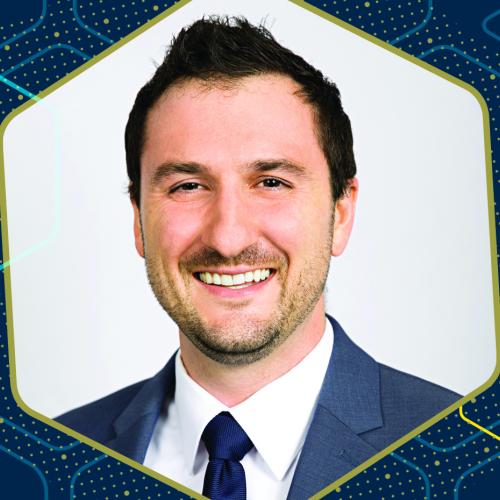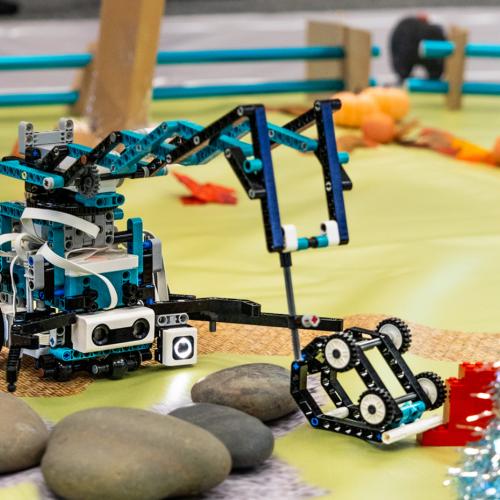Changing Times, Changing Knowledge and Roles for Lifetime Learning
Lifetime education is important for long term career success

We live in constantly changing times. As our world evolves, so must the way we learn and work. The drivers of change are not specific to an industry or profession but to our society as a whole. It starts from early education, and kids are growing up with skills we, as adults, learned not much more than a decade ago. Today's children, form kindergarten all the way through high school, are digital natives who instinctively know how to use technology in their daily lives. The products they create and seek along with their capabilities in the workforce will be very different from the employees of today.
When it comes to demographics, significant shifts are taking place. Traditionally, universities have been serving students aged 18 to 24. However, the number of 18-year-olds is shirking and fewer of them are interested in STEM as a field of study pr a future career. Perhaps one of the main reasons for this declining interest is the perception that STEM is too challenging or doesn't connect with their passions. Additionally, the number of high school graduates choosing to attend college is decreasing because of high costs of higher education.
On the other hand, people are living longer. This increase in lifespan leads to a change in social norms and how long we need to work to be able to afford a comfortable and distinctly longer life than our parents or grandparents.
These demographic changes signal a need for higher education to serve a wider audience. As public universities, we need to serve all the citizens of our state and no longer focus mainly on the 18 to 24-year-old group as we have done in the past, especially as new knowledge and technologies impact the work we do.
New knowledge is being created at a pace with which we can barely keep up. And it’s perpetually expanding. To remain current, today’s workers need to constantly update their knowledge and skills. For example, mobile devices that we rely on so heavily in our day-to-day lives have existed for less than 15 years. If you graduated more than 15 years ago and have not stayed current in your field, you’d need to consider professional education to get up to date. Since technology and the digitization of processes has affected all professions, we all need to continue learning to keep up with our fields. This is why universities need to evolve to be able to serve the learning needs of the entire workforce and not focus primarily on building an entry-level workforce.
The change in the nature of work demands new capabilities. Today’s workplaces need agile thinkers who can keep up with technology and navigate the changes it brings to their fields. In addition, they need to be T-shaped thinkers who have deep expertise required for their areas of specialization but also social breadth and the ability to collaborate and make connections across disciplines. In addition, digital skills are essential.
Embracing change is not an option. It’s imperative for the survival of our professions, industries, organizations and jobs. Countless examples exist of organizations that didn’t heed the calls for change and no longer exist today. From the media industries to retail establishments to the very nature of all work, people and organizations are changing.
The market is volatile, and even established companies that are seemingly fail-proof can cease to exist if they don’t evolve. In 1964 for example, the average tenure of a company on the S&P 500 was 33 years. By 2016, it dropped to 24 years and is forecast to be 12 years by 2027. In 10 years, as predicted by Innosight, it is estimated that 50 percent of the S&P 500 will be replaced.
Jobs change as the nature of work changes. Today’s average worker changes jobs between 10 and 15 times in a career according to the US Department of Labor. Sixty-five percent of today’s schoolchildren will be employed in jobs that haven’t been created yet. And by 2030, half of today’s jobs will disappear.
These changes have been on our minds at Georgia Tech, so we created a commission of faculty, students and staff to study this evolution in depth and to create a roadmap for higher education for the future. One of our key realizations is that we need to be deliberate in our innovation. We need to drive how and when we change and most importantly, for whom we change.
Our new vision includes initiatives that enable us to serve our community from kindergarten to forever. Making this commitment a reality will require sweeping changes in the way higher education has operated for centuries. For example, we intend to break down the artificial barriers between conventional schooling and higher education to enable learners of all ages to connect with us and to benefit from our offerings whenever they need us.
Another change is allowing flexible academic calendars and easily accessible pathways through Georgia Tech without compromising the rigor and quality of our education. This way, we can serve learners of different ages with different types of learning products at different times in their lives.
In addition to the traditional degrees we’ve been awarding for decades, we’ll be recognizing the different types of learning people do throughout their careers with new credentials that are sought after and valued by employers.
Networks are essential to learning since it doesn’t happen in a vacuum. We already serve thousands of learners worldwide with our online degrees. Our next step is to strengthen our network across the globe to enable our learners to better connect with us and each other.
Finally, we intend to provide advising and coaching for life to our community of learners. Many choices and pathways exist for people of all ages who want to keep learning. They need expert advice to navigate their options and make the right decisions about their education. We believe it is the duty of a public university, as a trusted member of society, to offer this kind of service to its community.
Admittedly, this university of the future is a bold new vision fraught with challenges. To realize it, we need to break down silos and find ways to penetrate long-established barriers so that we can continue to innovate. This vision to educate our community includes educating ourselves, which means training our own employees for tomorrow. As a higher education institution, we’ll need to reflect on the policies that prevent us from being innovative and realizing our unconventional goals.
The road ahead is not without its obstacles, but we’re crystal clear on where we’re headed and why we must move forward regardless of the challenges ahead. Change is inevitable, and succeeding now and in the future means learning throughout our lives. As a public university, it is our duty to provide the learning opportunities and services our community needs to be able to thrive during times of change.
This article was originally published in the January | February 2019 issue of The Georgia Contractor.
Georgia Tech Professional Education is a leader in innovative educational delivery, designed for working professionals in tech, business, and leadership. Our connection to the marketplace — coupled with our world-class faculty, researchers, and subject matter experts — provides an unparalleled prospective to education innovation, industry trends, future work, and lifelong learning. To read more about the premier innovators, collaborative platforms, and cutting-edge research transforming the university of the future, visit the Education & Innovation page.

